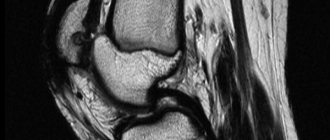What it is?
This pathology is characterized by the emergence of a certain set of reactions to a traumatic event, stress, and social difficulties.
In people with adaptation disorders, the adaptive capabilities of the psyche are reduced, i.e. they cannot “enter” new life circumstances or they need a longer time to master the changes that have arisen (6 months-1 year).
The situation with adaptation disorder can be resolved by complete
recovery , that is, the formation of a normal level of response to the novelty and diversity of life, or the pathology can become chronic and develop into a serious mental illness.
What is adjustment disorder?
Research shows that 6.9% of adults in developed countries are diagnosed with an adjustment disorder each year. A person may experience adjustment disorder after a stressful event or life change. This could be relationship problems, job loss, death of someone close, or a change of residence. People are all different, so the triggering events that contribute to adjustment disorder may vary.
Anxiety adjustment disorder is different from stress. The first occurs when a person has difficulty coping or adapting to a particular change in circumstances.
Typically, adjustment disorder manifests itself emotionally and mentally, but people who experience it may also have physical symptoms.
A person may have adjustment disorder if they experience symptoms following a stressor. Research shows that diagnostic criteria for adjustment disorder with anxiety include symptoms lasting about 6 months. If symptoms persist after this period, it becomes a different diagnosis.
Types
- Social adjustment disorder. It occurs when a person encounters situations that require a radical change in his lifestyle. Such stress can be caused by moving to a new place of residence, transferring to another position, the unexpected prospect of becoming parents, the departure or death of a spouse, orphanhood, etc.
In women, psychogenic adaptive mechanisms are most often disrupted when they lose support in life, when a man abandons them or their parents die. In such cases, their usual way of life collapses, changes, and mental balance is disturbed, and the fear of the future so traumatizes the psyche that the patients seem to close themselves off from the need to change themselves and their lives and go into pseudo-reality, which they model in their minds from negative experiences. Military adjustment disorder is common among young men .
If a guy does not have an internal readiness for the upcoming difficulties, he literally “breaks down” and in the first months of service his behavior looks inadequate to others. The young man withdraws into himself, withdraws, reacts poorly to calls to him, experiences serious sleep disturbances, sometimes refuses to eat, looks tense and anxious. Mature men may lose their adaptive capabilities due to troubles at work, loss of social status, and potency disorders. - Prolonged depressive reaction caused by adaptation disorder. This is a temporary (short-term) dysfunction of mental activity, accompanied by a depressed mood, excessive tearfulness, and an uncertain outlook on the future.
Its duration is no more than 1-2 years. This disorder also occurs against the background of changes in the life circumstances of patients.
Adaptation disorders: causes, signs, overcoming
Adaptation disorder, also called a disorder of adaptive reactions, is an anomaly manifested by psychotic symptoms, vegetative signs, and behavioral reactions. Adaptation disorder can occur for a variety of reasons due to exposure to intense or long-term stress factors. The dominant initiator of violations of adaptive reactions are significant changes in the subject’s usual way of life, caused by the extreme situation that has taken place. At its core, adaptation disorder is a long-term reaction to the influence of stress factors, which is distinguished by the particular intensity and depth of a person’s negative experiences. Problems with adaptation that arise in a person significantly worsen his social interaction, interfere with the performance of professional activities, and make full contacts with the opposite sex impossible. Violations of adaptive reactions are not pronounced and occur in a milder form of psychogenic depression or anxiety-phobic disorders. Based on the dominant symptoms, certain types of adaptation disorders are distinguished, in which the following symptoms predominate in patients:
- sad mood;
- obsessive anxiety;
- a combination of irrational fear and depressive triad.
- change or deterioration in social status;
- changes in a person’s financial situation;
- exclusion of a person from membership in any social or political group;
- loss of housing;
- dismissal from a position.
- problems in personal relationships;
- frequent conflicts in the family;
- lack of understanding between spouses;
- poor relationships in the work or educational community;
- regular financial difficulties;
- inability to satisfy your basic needs;
- difficulties of a sexual nature.
- eliminate the symptoms of the disorder, thereby saving the patient from suffering;
- help a person find a normal emotional state;
- to facilitate his rapid return to society as a full member;
- lay the groundwork for the subsequent absence of pathological reactions when exposed to stressors;
- prevent the development of severe psychosis.
Adaptation disorder: causes
Adaptation disorder is the result of a pathological reaction to the action of stress factors, varying in intensity and duration of influence. Violation of adaptive reactions occurs if the emergency situation was followed by significant changes in a person’s life. The most common cause of adaptation disorders is a pathological, complicated grief reaction associated with loss. Moreover, the definition of “loss” implies not only the death of a loved one or close relative. A significant loss for an individual is divorce from a spouse or termination of a relationship with a partner. A global loss for an individual is the collapse of his life ideals and the collapse of habitual moral values. An equally significant loss, which over time can give rise to an adaptation disorder, is physical injury received as a result of an accident, amputation of a part of the body due to a serious illness, dysfunction of an organ due to a progressive somatic disease. The causes of adaptation disorders are also:
Violations of adaptive reactions are likely consequences of prolonged exposure to chronic stress factors caused by the following circumstances:
In some situations, adaptation disorders arise when a person lives in unsafe places or in disadvantaged areas. According to the assumption, women are at higher risk of developing disorders of adaptive reactions compared to men. People who experience poor medical care are more likely to have adjustment problems. Also, certain facts from a person’s childhood can lead to the development of adaptation disorders, such as: growing up in a family that is too poor or too rich, or living with parents who drink. A person’s exposure to extreme conditions can lay the groundwork for pathological reactions to stressful events. You should know that in most cases, adaptation disorders do not arise directly from a traumatic situation. After an extreme event, a certain time interval passes, after which disturbances in adaptive reactions become noticeable. During this period, unexpressed depressive symptoms are observed, for example: low mood, apathy, fatigue. People often interpret such manifestations as signs of ordinary illness. Adaptation disorders: symptoms
Manifestations of adaptation disorders are diverse and unique for each person.
However, there are also common symptoms that affect most people. First of all, the portrait of a person who suffers from adaptation disorder changes. Outwardly, such a person looks much older than his biological age. Deep wrinkles become noticeable. Hair turns gray abundantly and rapidly. Dark circles appear under the eyes of the affected person. The person's look is tired and indifferent to what is happening. With adaptation disorder, the conditions of social interaction are also violated. The affected person avoids contact with others or reduces it to a minimum, preferring to spend time alone. When communication is necessary, the person speaks in a quiet voice. The pace of a person's speech is slow. He answers questions addressed to him monosyllabically and concisely. At the same time, he himself does not ask his interlocutor clarifying questions. It becomes noticeable to others that it is very difficult for a sick person to gather his thoughts and concentrate on the action being performed. To begin performing a task, he needs to make a significant volitional effort. The person becomes uninitiated and mechanically performs his professional duties. The person also finds it difficult to make decisions and doubts the correctness of the choice made. With adaptation disorder, the quality of work performed significantly deteriorates, and the volume of tasks completed per working day decreases. At the same time, the injured person understands his inadequacy, but tries with all his might to disguise this fact from others. The psychological status of the patient also undergoes enormous changes. The person is depressed and feels sad. He loses the ability to enjoy previously enjoyable activities. His circle of interests is narrowing. Very often, depressive symptoms are accompanied by an illogical, obsessive feeling of fear. The patient experiences insurmountable anxiety and anticipates the onset of some kind of catastrophe. Adjustment disorder “rewards” a person with the feeling that it is impossible to cope with difficulties and overcome the problem. A person feels incompetent and reproaches himself for not being able to work at full capacity. Often the injured subject develops ideas of his own guilt and worthlessness. The affected person underestimates his abilities and is confident that positive changes cannot occur in him in the future. With adaptation disorder, severe sleep problems are determined. In the evening, a person cannot fall asleep for a long time. Plunged into sleep, he sleeps in an uneasy fitful sleep with frequent nightmares. He wakes up in the pre-dawn hours and does not feel fresh and energetic. Another symptom of adaptation disorder is a person’s excessive impressionability and vulnerability. The sick person is very sensitive to comments and criticism from others. At the slightest provocation she is ready to cry. The affected person becomes easily suggestible, he quickly agrees with the opinion of the interlocutor and succumbs to the influence of others. In some cases, progressive social isolation is observed, when a person completely breaks off any contact with others. In parallel with this, a feeling of hostility and hatred towards certain representatives of society may arise. Some affected people develop paranoid ideas over time. Of the autonomic symptoms of adaptation disorders, the dominant position is occupied by a persistent increase in blood pressure. A person often suffers from headaches and feels dizzy. Somatic signs of pathology from the digestive tract also appear. Some people's appetite worsens or disappears altogether, and they voluntarily fast. Other individuals, on the contrary, have an insatiable feeling of hunger, and they absorb large amounts of food. Some patients suffering from adjustment disorder begin to take drugs and abuse alcohol. There are also those victims whose violation of adaptive reactions leads them to the ranks of gamblers who spend all their capital in casinos or on slot machines. Some people become religious fanatics or join some sects. A characteristic feature of many patients with adaptation disorder is neglect or denial of the moral norms and rules of behavior existing in society. A person’s criticism of his behavior decreases, while he considers many unseemly and illegal acts to be normal and acceptable phenomena. Treatment of adaptation disorder
Medical assistance for violation of adaptive reactions has several goals:
To eliminate the demonstrated symptoms of adaptation disorder, drug treatment is carried out using antidepressants and tranquilizers of the benzodiazepine class. After relief of the acute condition, they move on to the main component of treatment - psychotherapeutic work. The psychotherapist explains to the patient the features of his condition and informs him about the mechanisms of development of adaptation disorder. Thanks to psychotherapy, it is possible to establish the trigger of pathology - the initial element that launched the cascade of pathological reactions. The subsequent implementation of measures for a different interpretation of the traumatic situation makes it possible to break the once formed vicious circle. During psychotherapeutic sessions, the client receives knowledge of how to competently and painlessly counteract stress factors. The patient will learn what methods exist to relieve psycho-emotional stress. In difficult situations, treatment with hypnosis may be required, since very often the negative life program is hidden from a person’s conscious perception and is located at a different level of the psyche - the subconscious. To change a destructive life strategy, the patient is immersed in a state of hypnotic trance and suggestion is performed - a special verbal attitude that motivates the person to make a full recovery.
ICD-10
Disorder of the adaptive capabilities of the human psyche belongs to the group of reactions to severe stress and objective circumstances - F43 .
It includes mental and behavioral disorders associated with the influence of severe emotional experiences or significant changes in people's lives. Doctors believe that these reasons are the trigger that provokes the development of the disease.
Disorder of adaptive reactions (adaptation) is classified with code F43.2 .
Experts characterize it as the impossibility of adequately responding to environmental conditions, a disturbance in the emotional background and the appearance of actions inappropriate to the situation, a narrowing of an individual’s social contacts, and a change in his social activity.
Symptoms of adjustment disorder with anxiety
People who experience chronic adjustment disorder may have symptoms for a longer period of time. If the stressor persists, symptoms are also likely to be long-lasting. Common symptoms of adjustment disorder include:
- difficulty concentrating;
- memory loss;
- feeling overwhelmed by daily activities;
- feeling restless or anxious;
- fatigue;
- muscle twitching or trembling;
- difficulty sleeping or insomnia;
- frequent desire to cry;
- loss of appetite;
- suicidal idea.
How are the symptoms similar to anxiety?
People who experience anxiety may have generalized anxiety disorder. While symptoms are similar to adjustment disorder, generalized anxiety disorder is sequential and often not related to a specific, identifiable event.
There are some symptoms that occur with both anxiety disorder and adjustment disorder. Symptoms of anxiety often include the following:
- feeling hopeless or sad;
- changing sleep patterns;
- feeling restless or nervous.
Causes
The development of this pathology is based on a deep-seated fear of the newness of life; this separation from usual circumstances can negatively affect the psyche and health of people.
The occurrence of adaptation disorder occurs under the influence of many factors:
- these are individual characteristics of the psyche: its vulnerability and sensitivity, a person’s character and temperament, infantilism (immaturity) of adaptive mental functions, lack of formation of life motivation, prospects for the future;
- this is the presence in the past of violent emotional experiences about changes in fate;
- this is a lack of skills and abilities to independently resolve life’s difficulties (provoked by overprotection in childhood or, on the contrary, complete ignoring of the child);
- this is the presence of chronic and somatic diseases;
- This is the presence of a history of phobic disorders.
Symptoms
Patients with adaptation disorder look confused and uncollected, they feel high anxiety and suspiciousness about the next day, they are bothered by obsessive thoughts about the meaninglessness of life, death, illness, injustice in the world.
Such patients are so immersed in their own world that they cannot concentrate even on a simple everyday task (cooking, driving, cleaning, etc.), they lose interest in their professional activities, children, spouses, parents, they are not interested in cultural or leisure values, such people cannot be involved in social life, festive events, or travel.
The main characteristic signs of adaptation disorder are the inability to plan and fear of the future.
Diagnostics
It is possible to identify the disease and make a correct diagnosis taking into account the following criteria:
- detecting a clear connection between the occurrence of a disorder and a change in the life circumstances of patients (the pathology may be a consequence of long-standing events that occurred months or years ago);
- observation of violations in professional activities (absenteeism, reluctance to get a job, lack of interest in work) and in the social sphere (narrowing of social circles, ignoring loved ones, isolation, avoidance of public events);
- the presence of inadequate emotional (anger, crying, withdrawal) and behavioral (ignoring the words of the interlocutor, failure to fulfill duties at home and at work) reactions;
- identification of depressive, apathetic states, insomnia, somatic disorders;
- the duration of such reactions is at least three months.
Adjustment disorder and depression
Over the past 50 years of research, doctors have characterized depression as difficulty regulating emotions. Although adjustment disorder is very similar to depression, it is superficial. The causes and duration of symptoms of these two conditions are different.
Adjustment disorder usually lasts up to 6 months and is caused by a specific change in circumstances. Depression tends to be longer-lasting, chronic, and may be caused by environmental, psychological, or genetic factors.
Recommendations: If people experience depression, they should seek medical and psychological help from specialists
Doctors sometimes call adjustment disorder situational depression because the symptoms may be similar, but the duration of situational depression is short.
Treatment
Since adaptation disorders can get worse, it is better not to wait until you “pull yourself together”, but to contact a qualified specialist (psychologist or psychiatrist).
Practice shows that the main difficulty in treating impaired adaptive reactions lies in identifying the root cause of the disease.
Consultations and conversations with doctors who know the technique of detecting a traumatic situation in the minds of patients can help with this, i.e. psychotherapeutic sessions are structured in such a way that they help patients understand their problems and change their attitude towards them. When such a turning point occurs, the patients’ emotional background and behavior change.
For severe depression, anxiety and fear, various medications are used: from simple sedatives to antipsychotics and antidepressants.
If all medical prescriptions and recommendations are followed, patients can regain their ability to adapt normally to the environment.
Adjustment disorder and post-traumatic stress disorder.
Similar symptoms are observed in both adjustment disorder and post-traumatic stress disorder. However, these are 2 different conditions and the treatment methods will also be different. Health experts estimate that 3.5% of adults in developed countries suffer from post-traumatic stress disorder.
The main difference between these two disorders is that:
- adjustment disorder is associated with activation by a stressful event or environmental change.
- PTSD often occurs due to an extremely traumatic event, such as a fight, sexual assault, or other violence.
Symptoms of PTSD may also include flashbacks of events, avoidance of reminders of events, or lingering psychological symptoms such as guilt.










